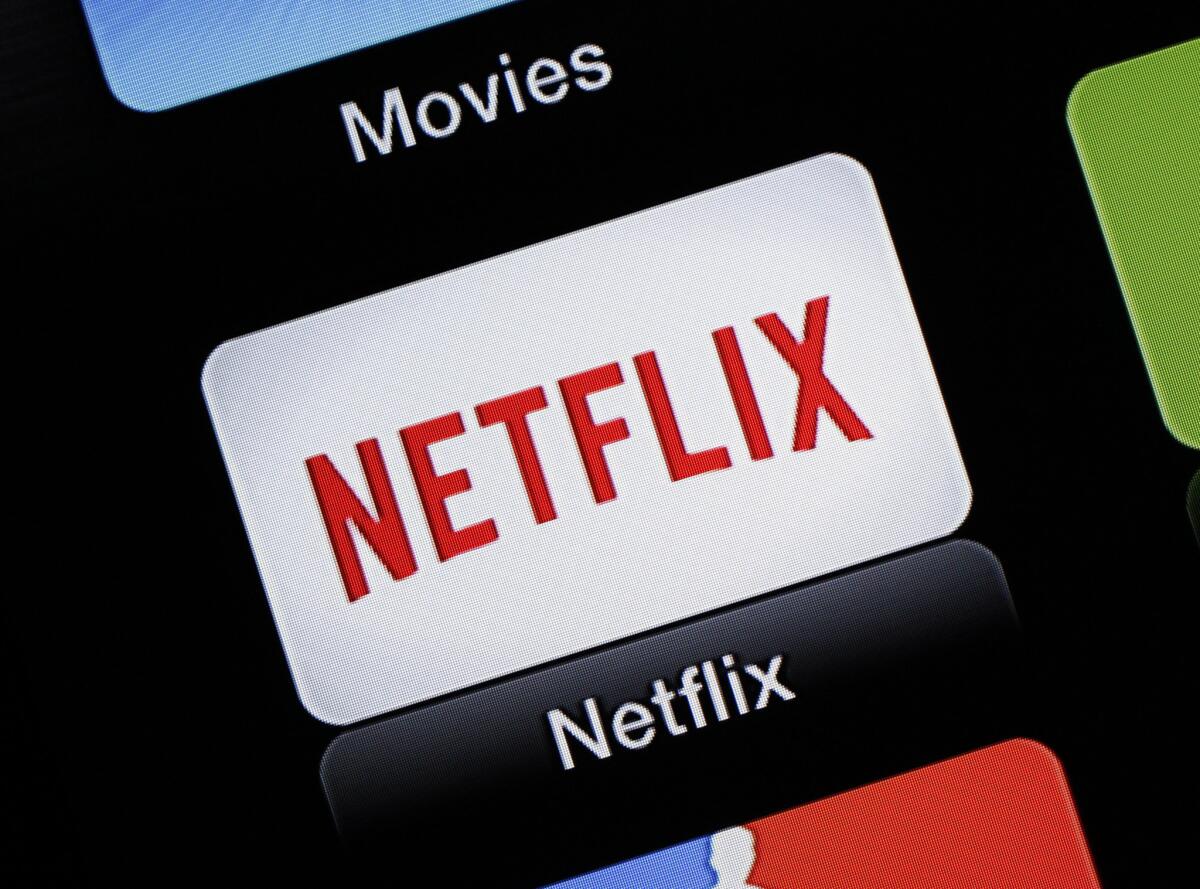Netflix shares drop 12% after lowering estimates for new international subscriptions

Netflix reports its first-quarter earnings for 2016
Shares in Netflix tumbled in after-hours trading on Monday after the company lowered its forecast for international subscriber growth next quarter.
Netflix posted revenue of $1.96 billion during the quarter, slightly below the $1.97 billion that analysts expected.
------------
For the Record
April 18, 5:28 p.m. : An earlier version of this post incorrectly stated that first-quarter revenue for Netflix was $1.81 billion. It was $1.96 billion.
------------
Net income rose 17% to $28 million, or 6 cents a share, well above the 3 cents per share in the quarter that analysts had forecast.
Nonetheless, shares in Netflix fell more than 12% in after-hours trading after the company lowered its guidance for new international subscriptions in the second quarter. Shares closed Monday at $108.40, down nearly 3%.
The Los Gatos, Calif., streaming giant added 2.23 million subscribers in the U.S., well above the 1.82 million Wall Street had projected due to the popularity of such shows as “Fuller House” and the documentary series “Making a Murderer.”
Nonetheless, the growth was below the same period a year ago when Netflix added 2.28 million subscribers. Netflix now has 81.5 million total members worldwide.
The mixed results come at a time when Netflix faces a growing number of digital competitors. Formidable players like Amazon Prime, Hulu, HBO Now and YouTube Red have become more aggressive in their push to court viewers.
In fact, Netflix earnings brought more interest in the wake of Amazon’s move Sunday night to offer a new stand-alone, monthly subscription plan for Prime Video. For $8.99 a month — a buck a month less than Netflix is charging most of its customers — subscribers of Amazon’s video streaming-only option can have access to the e-commerce giant’s library of TV and movie content.
“Hulu is doing some great work,” Netflix Chief Executive Reed Hastings said in a webcast with investors. “Amazon is, HBO, Showtime. There are so many competitors. Everyone is working hard to build the best content. We’re seeing growth in overall Internet TV market ... it’s natural that everyone is coming in as they realize the future is Internet TV. This is all part of the natural evolution from linear TV to Internet TV.”
In a bright spot for Netflix, the company’s global business is growing rapidly. In January, Netflix activated service in 130 additional countries, tripling the size of its network with expansions into South Korea, India, Russia and others. Netflix is now available in 190 countries.
Netflix aims to offer 600 hours of original programming, up from 450 hours in 2015. And its expanding roster of original films is part of that slate.
The company has been met with some criticism by movie theater owners over its day-and-date release strategy, wherein titles are available on Netflix on the first day they are available in theaters. On Monday, content chief Ted Sarandos said he’d be open to doing business with a fellow disrupter to the movie industry: Screening Room.
“We wouldn’t mind having our films available on that product,” Sarandos said. “To me, it would be a great way to get content to consumers, if they want to pay for it.”
Screening Room is a proposed movie service from Napster co-founder Sean Parker that would give users access to films the day that they’re released in theaters for $50 each after paying $150 for a set-top box.
If Parker succeeds, it could open a vast new revenue stream for his fledgling company and change how entertainment is consumed in the home. However, the venture has been criticized by many people in the film business who believe it would cannibalize the exhibition business, and high-profile filmmakers including James Cameron have come out against the service.
Sarandos did not elaborate on whether Netflix would be willing to give Screening Room an exclusive window to its films. But without such a motivation in place, it’s hard to see the incentive for a customer to pay $50 for a single movie rental when the same movie could be viewed on Netflix at a fraction of the cost.
Representatives for Screening Room declined to comment on Sarandos’ statements.
Times staff writer Daniel Miller contributed to this report.
I tweet about TV (and other things) here: @villarrealy
More to Read
From the Oscars to the Emmys.
Get the Envelope newsletter for exclusive awards season coverage, behind-the-scenes stories from the Envelope podcast and columnist Glenn Whipp’s must-read analysis.
You may occasionally receive promotional content from the Los Angeles Times.







